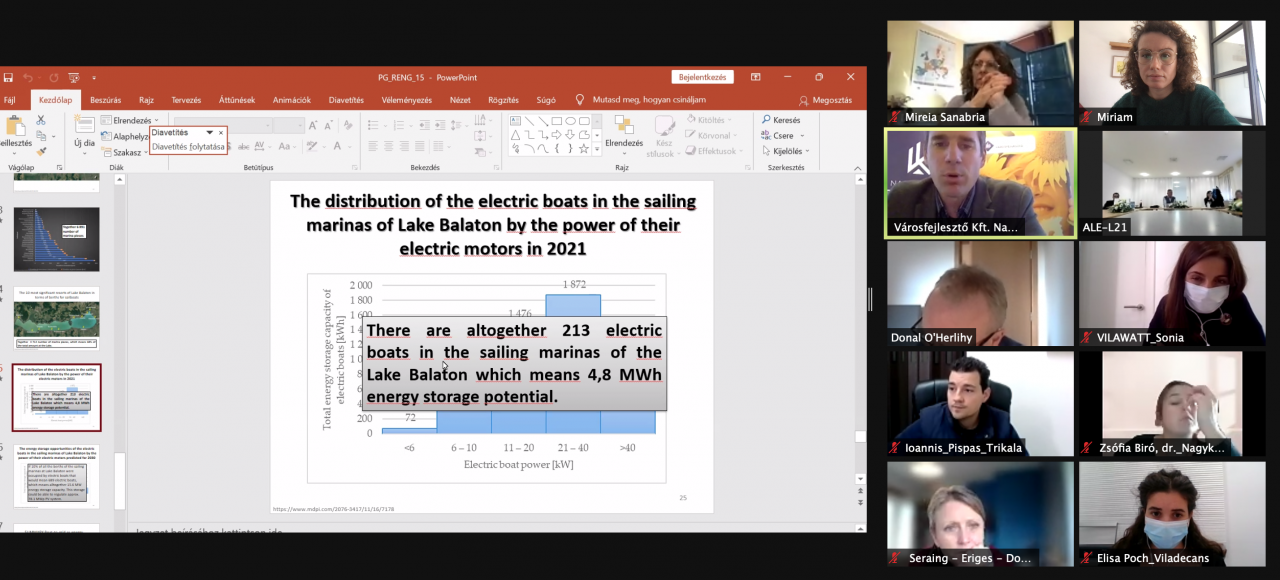
The third transnational meeting (TM3 – 16-18 November) has once again brought together the partner cities of the Vilawatt UIA-URBACT Transfer Mechanism (Vilawatt-UTM) project online to start the second transfer period, the so-called Adaptation Period.
The TM3, which took place over three days, was hosted by the city of Nagykanizsa (Hungary) and combined working sessions with city-to-city exchange and learning sessions.
The first day was used to share how the partner cities are preparing their respective Investment Plans -the Springboard in the case of Viladecans, the Lead Partner City- with an initial draft of the main objectives and areas of work to be taken into account so that, in the future, each city can implement its own adapted version of Vilawatt. This collaboration between cities is part of the URBACT transfer method and allowed a group discussion among partner cities that helped to better understand each other project goals and adapt it locally, based on the resources available and the reality of each city.
On the second day, the host city was the centre of attention: Nagykanizsa. This time and as was the case with the city of Seraing in TM2, several representatives and experts presented some of the most interesting and innovative energy transition projects that are currently being developed at local and national level, also its main assets that can potentially be the starting point for the adaptation of Vilawatt project in the Hungarian city. Nagykanizsa, and Hungary as a whole, is highly committed to sustainable energy management, and to citizen involvement in this process because as the city's mayor Lászlo Balogh explained: “The challenge in the fight against climate change demands a joint approach in which we learn from each other and maintain a strategic attitude”.
Dr. Zsófia Biró, lawyer and economist at the University of Pécs, explained some of the most important aspects of the Hungarian legal framework regarding the energy transition and the constitution of energy communities. István Miklósváry, manager, and Peter Kalovics, engineer at Resideo, the company specialising in home energy control units, highlighted the importance of this type of device in promoting energy savings, as well as the interventions for energy improvement, which they have been able to experience first-hand at the company's own facilities.
Miklós Bárczi, coordinator of the Vilawatt project in Nagykanizsa, presented two of the most promising local projects for the Vilawatt innovative practice transfer process: RenoHub, focused on housing renovation, and the e-mobility project of the city.
Renewable energy researchers also had a lot to contribute to this session. Dr. András Vincze, from the Circular Economy Competence Centre at the University of Pannonia, explained the interesting experiments being carried out to improve the efficiency and performance of solar photovoltaic technology. Dr. Gábor Pintér presented an innovative ‘Boat-to-Grid’ project for energy storage in boats on Lake Balaton and Dr. Kornél Németh focused on the importance of monitoring indicators applied to the pillars of circular energy in cities.
Finally, the last day of TM3 allowed the partner cities to deepen their understanding of two of Vilawatt's five pillars through the learning webinars: Energy Pooling and Citizens' Engagement in energy efficiency and transition strategies in the city.
Find out more here (TM3 full report)
